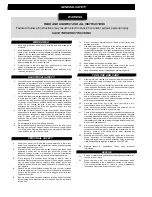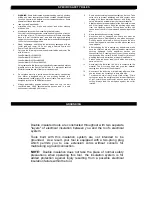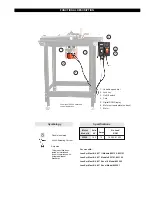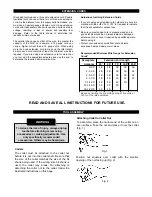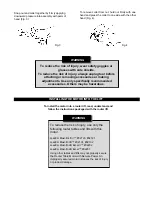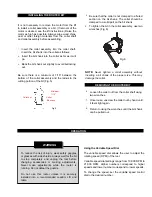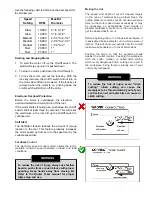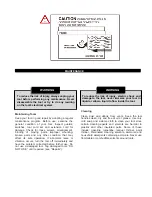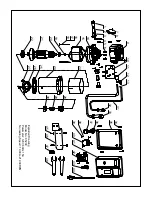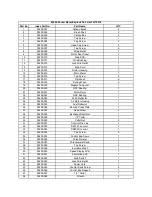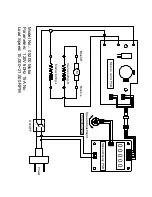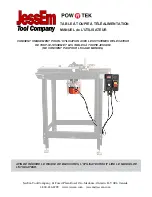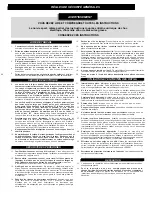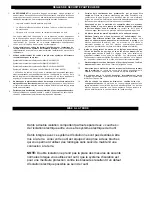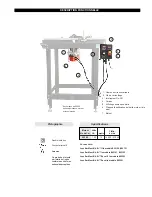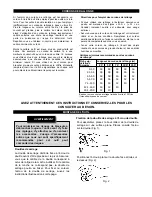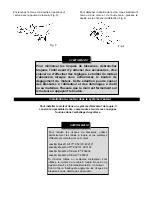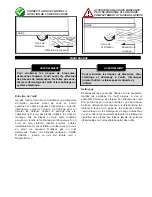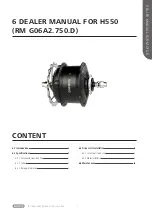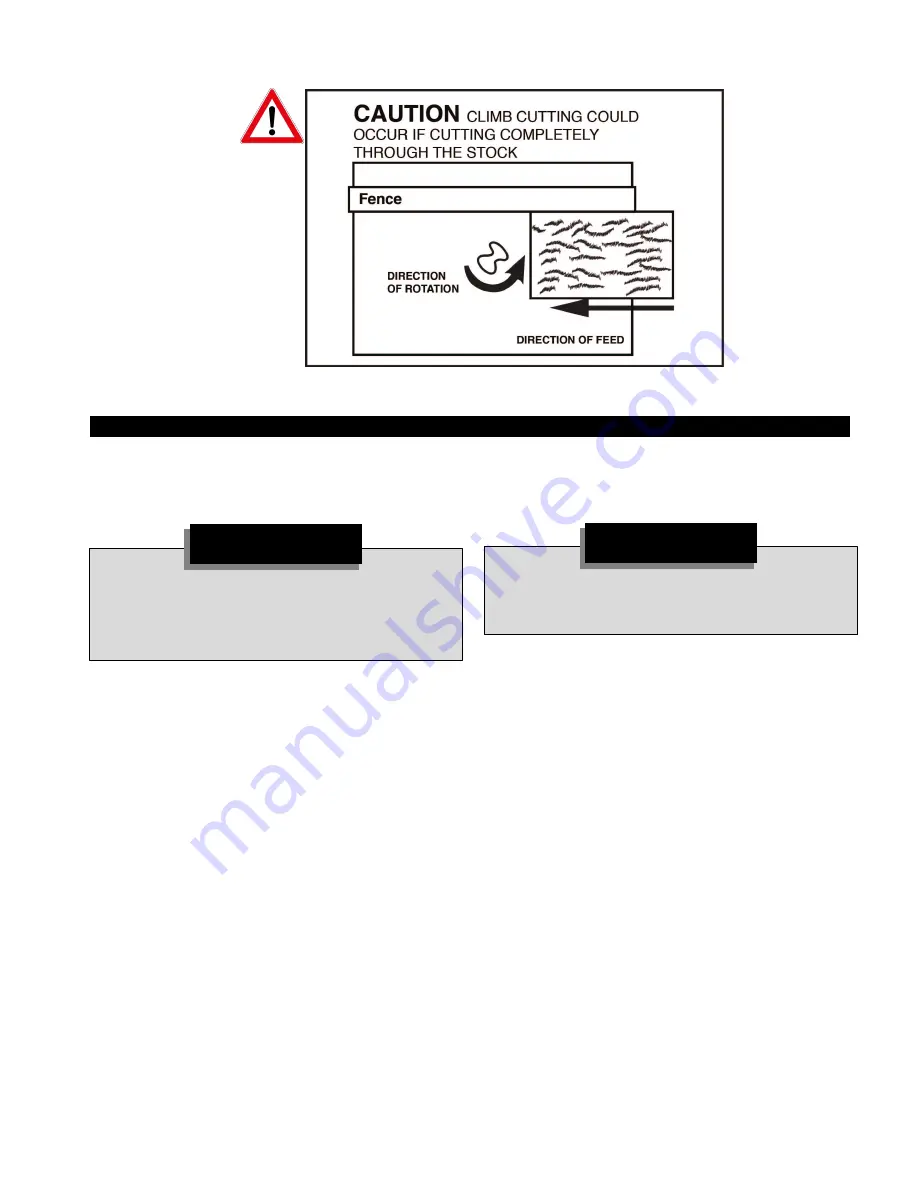
Maintaining Tools
Keep your tool in good repair by adopting a regular
maintenance program. Before use, examine the
general condition of your tool. Inspect guards,
switches, tool cord set and extension cord for
damage. Check for loose screws, misalignment,
binding of moving parts, improper mounting,
broken parts and any other condition that may
affect its safe operation. If abnormal noise or
vibration occurs, turn the tool off immediately and
have the problem corrected before further use. Do
not use a damaged tool. Tag damaged tools “DO
NOT USE” until repaired (see “Repairs”).
MAINTENANCE
Cleaning
Clean dust and debris from vents. Keep the tool
handles clean, dry and free of oil or grease. Use only
mild soap and a damp cloth to clean your tool since
certain cleaning agents and solvents are harmful to
plastics and other insulated parts. Some of these
include: gasoline, turpentine, lacquer thinner, paint
thinner, chlorinated cleaning solvents, ammonia and
household detergents containing ammonia. Never use
fl
ammable or combustible solvents around tools.
W
ARNING
To reduce the risk of injury, always unplug your
tool before performing any maintenance. Never
disassemble the tool or try to do any rewiring
on the tool's electrical system.
W
ARNING
To reduce the risk of injury, electric shock and
damage to the tool, never immerse your tool in
liquid or allow a liquid to flow inside the tool.


